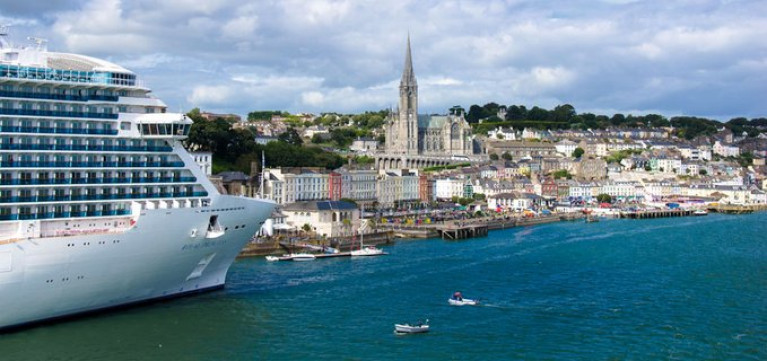Displaying items by tag: Irish Chairman
According to Cruise Europe (CE), the role of organisations and associations, such as CE, is now more critical than ever commented Michael McCarthy, chairman of Cruise Europe on the Covid-19 pandemic.
“Over the last four years the executive of [Cruise Lines International Association] CLIA Europe has engaged with these associations in a very proactive way which will work to all our benefit during this unprecedented and catastrophic pandemic for so many in society as well as business. It is life changing in many ways.
“The rapidly-spreading virus has caused uncertainty and vulnerability in every society in every country and the World Health Organization (WHO) and their best medical staff are scrambling to understand the virus and trying to catch up with its meteoritic spread. The tourism sector has never before in my lifetime been impacted so heavily and so comprehensively.”
All ports are keeping their contingency plans under review while dealing with the unfolding developments. At this time all members are advised to keep under review the European Commission ‘Guidelines on protection of health, repatriation and travel arrangements for seafarers, passengers and other persons on board ships’, which are on the EU website.
“Clearly this global crisis will change us and what we do and what I would like to convey is that it is our inter-dependence as an industry that has made us develop and kept us strong for so long. It is these dependencies and connectivity that will help us emerge from this together,” says McCarthy.
The WHO is the driver of policy in tackling the pandemic and its criteria and guidance will determine what restrictions, protocols and practices need to be enforced to help ensure the health and well-being of passengers and crew.
CE and the cruiselines are passionate and committed to the safety of its passengers and crew. “It will be our challenge going forward to bring that message to the public along with responsible tourism practices and the highest standards of environmental stewardship.”
All CE ports are covered by the IMO-Maritime Declaration of Health which has to be completed and submitted to the competent authorities by the masters of ships arriving from foreign ports. Some of the health questions in this Declaration include being aware of any condition on board which may lead to infection or spread of disease, quarantine, isolation, disinfection or decontamination. In the absence of a surgeon, the master has to regard symptoms as grounds for suspecting the existence of a disease/virus of an infectious nature. In addition, all countries are parties to the WHO International Health Regulations pertaining to International voyages.
Prior to the current pandemic, the cruise industry was one of the fastest growing segments of tourism. Many destination business models were under review and improvements in infrastructure and on the sustainability of the sector were being carried out. This ‘sustainability’ included fuel emissions, EGCS, washwater, smoke, port waste reception facilities, ballast water management, LNG, GHG, number of cruise ships in port, over-tourism, overcrowding, traffic, noise, etc.
To avoid perception becoming reality, the industry and its stakeholders need to find a solution to answer the many fears and concerns of ports and regions accepting large cruiseships berthing in densely populated areas. This will have to include health monitoring in line with security monitoring if passengers are to feel welcomed to a region rather than be shunned. This will also apply to all tourism as people return to air, sea, bus and rail transport.
“With industries across the globe shut down, this pandemic has exposed the very nature and vulnerability of the worlds current supply chain and the way people live. I have no doubt that a recovery will come and we will be stronger and better. CE members are dealing with the present while reacting by looking at options and potential opportunities. This may entail new strategies for the future of their business. The important point is to be ready for the recovery because there are many things that can be done now that will be successful no matter what the future conditions.”
CruiseEurope adds that a longer version of this article first appeared on the CruiseNews Media Group website on 6 April.
























































